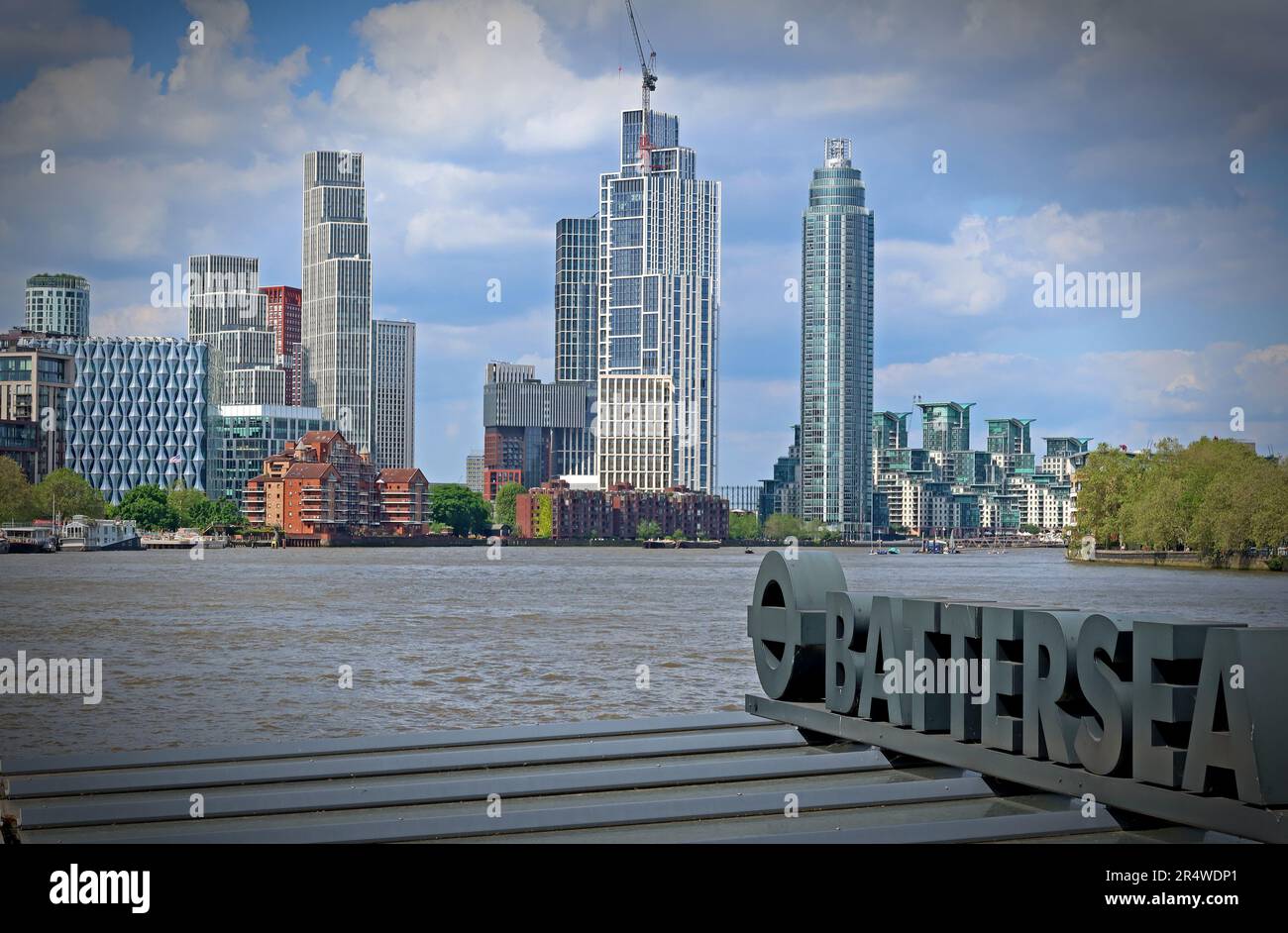Battersea Power Station, Nine Elms, Wandsworth, London, England, UK, SW11 8BJ

Image details
Contributor:
Tony Smith / Alamy Stock PhotoImage ID:
2R4WDP1File size:
42.6 MB (1.6 MB Compressed download)Releases:
Model - no | Property - noDo I need a release?Dimensions:
4768 x 3125 px | 40.4 x 26.5 cm | 15.9 x 10.4 inches | 300dpiDate taken:
20 May 2023Location:
44 Electric Boulevard, Battersea Power Station, Nine Elms, Wandsworth, London, England, UK, SW11 8BJMore information:
Battersea Power Station is a decommissioned Grade II* listed coal-fired power station, located on the south bank of the River Thames, in Nine Elms, Battersea, in the London Borough of Wandsworth. It was built by the London Power Company (LPC) to the design of Leonard Pearce, Engineer in Chief to the LPC, and CS Allott & Son Engineers. The architects were J. Theo Halliday and Giles Gilbert Scott. The station is one of the world's largest brick buildings and notable for its original, Art Deco interior fittings and decor. The building comprises two power stations, built in two stages, in a single building. Battersea A Power Station was built between 1929 and 1935 and Battersea B Power Station, to its east, between 1937 and 1941, when construction was paused owing to the worsening effects of the Second World War. The building was completed in 1955. "Battersea B" was built to a design nearly identical to that of "Battersea A", creating the iconic four-chimney structure. "Battersea A" was decommissioned in 1975. In 1980 the whole structure was given Grade II listed status; "Battersea B" shut three years later. In 2007 its listed status was upgraded to Grade II*. The building remained empty until 2014, during which time it fell into near ruin. Various plans were made to make use of the building, but none were successful. In 2012, administrators Ernst & Young entered into an exclusivity agreement with Malaysia's S P Setia and Sime Darby to develop the site to include 253 residential units, bars, restaurants, office space (occupied by Apple and No. 18 business members club), shops and entertainment spaces. The plans were approved and redevelopment commenced a few years later. As of 2021, the building and the overall 42-acre (17 ha) site development is owned by a consortium of Malaysian investors.